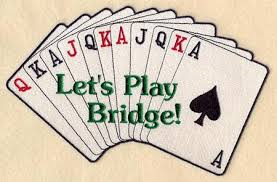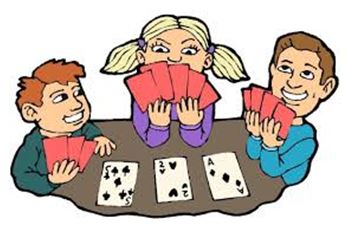| WELCOME |
 Welcome to the web-site of one of the most popular & friendly Bridge Clubs in England.
We would like to thank you for looking at this web-site. We hope that you can find amongst the extensive information provided, the knowledge you require.
On the home pages, we mostly cover Club information & upcoming events, whereas, in the "MENU" (to your left (on an I-Pad, Tablet, Lap-Top or similar)), we report on more of the workings, origins & statistics of the Club. We also describe there, more of the big wide world of Bridge that is out there, including teaching, viewing, merchandise, and breaks/holidays, all put together in one place, for your ease & convenience. We hope that you will return here soon.
|
|
| Last updated : 13th Jun 2025 18:05 BST |
|
|
|
| LOOKING TO START OR RETURN TO PLAYING BRIDGE....? |
 |
- Looking for a hobby / pastime that will stretch your mind?
- Newcomer to the game, intrigued by what you have seen or heard?
- Don't know if this is for you?
- Unsure of where to start?
- Apprehensive, because you are taking a step into the unknown?
Or :-
- Returning to the game after some time away?
- Able to play, but no partner - not sure how to find one?
We may have the answer - just call the Secretary Stephen Hanslip on 0781 555 3130, or e-mail him at "WakefieldBridgeClub@pianola-mail.net". Alternatively you can contact Danny Parsonson on 0758 147 6235, or e-mail him at "dannyparsonson@hotmail.com".
The game of Bridge is played by all ages and abilities in schools, universities, bridge clubs, social groups & individual houses all around the world, so we at Wakefield Bridge Club, are always looking to expand our fantastic game to more of the residents in our locality, whatever your age, so that you all can discover its pleasures.
We are a thriving Bridge Club with approximately 170 members, but we always welcome new members to our friendly group. We would be extremely pleased to see you, so come along and take the plunge, and find out if the game of Bridge is for you.
This game of Bridge has been proven to be excellent for your mental health, by making the maximum use of your brain's aptitude and abilities. It is a mentally challenging form of entertainment, offering intellectual and social stimulation on a routine basis. Bridge's intricacies should make it particularly appealing for those who want to sharpen their acuity whilst performing mental gymnastics. In detailed research of Bridge Players v Non - Bridge Players in the age category 55 - 90, that study indicated that Bridge players outperformed non players in terms of memory & reasoning. Listening, etiquette, concentration, dealing with winning & losing along with many other social skills, can be enhanced by playing Bridge.
All you have to do is take the first step - TRUST US - we will help you take it from there.
- If you have tried us and like what you see, and keep returning, you can expect to be asked to become a member of our Bridge Club.
|
|
| Last updated : 16th Jun 2025 15:57 BST |
|
|
|
| COME AND JOIN US - HOW TO FIND WHERE WE ARE |
 Wakefield Bridge Club.
The club was founded in 1953 (you can find the unbroken history of the club under "CLUB HISTORY" in the "MENU").
In 2021, we relocated to our new home in Thornes Park. We have taken part of the ground floor of the former school/college, which is now a part of the Penny Appeal Campus. We have two Bridge rooms, with a small kitchen and separate ladies and gents toilets. The aerial view (shown above) shows the former college/Penny Appeal buildings at the top left, and the main car park. The thin grey line running through the trees, from the bottom right of the photograph, marks the line of the road up from the park entrance on Horbury Road, the A642. This is the only road entrance for vehicles, to the Car Park & Bridge Club, as all the other entrances have bollards in the roadways to prevent further access.
For detailed guidance on finding us please refer to the "MENU", look for the section which is labelled "HOW TO FIND US AT WBC" (WAKEFIELD BRIDGE CLUB) and then select either of the two alternatives of "Map/Photo directions", or "Written directions" to WBC (WAKEFIELD BRIDGE CLUB).(You will need to rotate the map/photo pictures - use the swivel icon on the page, please).
The post code of the club is WF2 8QZ; the what3words /// address of the club room entrance is flank.inspector.waving; the what3words /// address of the car park entrance is kind.brass.exchanges. (Find the what3words app on your smartphone). If you are using satellite navigation to direct you to the club, please ensure that you approach from the Horbury Road (North) entrance to the park (the A642).

|
|
| Last updated : 2nd Apr 2025 14:46 BST |
|
|
|
| WHEN - OUR PLAYING SESSIONS DESCRIBED |
 Forthcoming Events are always listed in the "MENU" under "CALENDAR". Alternatively, you can pick up one of our free A5 calendars, from the Bridge Club.
Please note that there may NOT be a host for some of these sessions. All members CAN volunteer to host a session, regardless of your ability. You may not be needed, but if you are, you are entitled to treat this as a FREE session - please volunteer and sign up on the notice board...................... (Sessions requiring hosts are Monday Morning, Tuesday Evening & Friday Mornings in a typical week & every week).
PLEASE PLAN TO ALWAYS ARRIVE AT LEAST 10 MINUTES BEFORE THE START OF ANY OF OUR SESSIONS.
This is to enable us to select the correct type of game, based on the numbers present. If you turn up late, this delays this selection, and therefore the start of the session. Turning up late may mean that we have started without you, and you will be going home without playing. It also means that all those who turned up in plenty of time, will NOT finish on time. It is in your hands to make this NOT happen! Masterpoints & NGS gradings are available on all our sessions, except where indicated.
Monday Mornings - The second step - We offer a gentle, regular session of Bridge, that should provide an introduction into meeting other members of WBC, as well as introducing you into the mechanics of a Bridge session. If you would like to be involved simply turn up on the day. A host may not be available.
Monday Evenings - These have a competitive atmosphere. Pairs of visitors are always welcome, but if you need a partner, please place an advert on Pianola, on Partner Finder. Occasional Monday evenings are marked as Teams Events, and then advance registration is required - see the calendar (shown in the "MENU" under "CALENDAR" for details.
Tuesday Mornings - A teaching session for improvers, and existing members with some experience of the game. We replay interesting (random, not prepared) hands from a previous session (usually Thursday's), and discuss teaching points as they come up, but we don't always agree. Open to all members, this is an excellent opportunity to think and talk a little more deeply about your bridge. NO Master Points or NGS grading movement is given.
Tuesday Evenings - The atmosphere is a little more relaxed, and the number of boards played is limited. A host may not be available.
Thursday Morning - The first step. A teaching session for individual beginners and individual improvers. This is your chance to play some new & unseen hands of bridge, whilst talking about a host of different topics and enjoying a variety of different cakes each week, with no expectations or time limits. NO Master Points or NGS grading movement is given.
Thursday Evenings - These have an even more competitive atmosphere. Pairs of visitors are always welcome, but if you need a partner, please place an advert on Pianola, on Partner Finder. Very occasionally, there are Teams Events (see Monday evenings above for the protocol).
Friday Mornings - This session aims to be relaxed in character, but it is competitive, and players of all grades are welcome. A host may not be available.
Need to know :-
- Monday Morning - Level ♣/♦ - start 10.00, finish about 12.30 / 13.00 - play about 14 boards (14's) or 21 boards (21's).
- Monday Evening - Level ♥ - start 19.00, finish about 22.30 - play about 27 boards.
- Tuesday Morning - Level ♣ - start 10.00, finish about 12.30 - a teaching/discussion session involving up to 8 boards.
- Tuesday Evening - Level ♦/♥ - start 18.45, finish about 21.45 - play about 20 boards.
- Thursday Morning - Level ♣ - start 10.00, finish about 12.30 - play up to 8 boards with a topic discussion.
- Thursday Evening - Level ♠ - start 19.00, finish about 22.30 - play about 27 boards.
- Friday Morning - Level ♦/♥ - start 10.00, finish about 13.00 - play about 20 boards.
-
Levels (in our opinion), equate approximately to difficulty of each of our sessions (suits in bridge ranking order).
|
|
| Last updated : 16th Jun 2025 15:55 BST |
|
|
|
| THE HARD PART - MONIES ETC |

- Normal sessions - are charged at £3.20 table money per head. Please don't bring cash, we will send you a bill at the end of the month and you can pay by bank transfer. For visitors, the first session is always free, and we hope that you will return.
- Extra non Weekly Events - these will usually be charged to you at the end of the month, after they have occurred, together with the sessions that you have played in. These Extras, are found on our free A5 calendars, or by looking on the "MENU" under "CALENDAR" on this web-site.
- Membership 2025 - 2026 :- The membership fee is £30 per year. However, new members can join during the year at a rate of £2.50 per month remaining until the following 31 March (payable as a lump sum). Normally, our annual AGM takes place in April (It will be on Tuesday 28th April in 2026). We are looking at altering the fees again in 2026, to £25 per year & per session to £3.30. Watch this space for developments................
- Drinks - Tea and coffee are available for a small donation (we suggest £0.50 per drink) in our own kitchen (we will sort out the milk). We have a large fridge and members are invited to bring their own drinks in for consumption. Thank you for your honesty.
- Biscuits - Thanks go to the BISCUIT TSAR - Ernie. Biscuits (when available) are now available freely in the kitchen. Now share nicely.........
- Remember - If you use cups or glasses from the kitchen, can you PLEASE remember to return them afterwards, hopefully you possess the knowledge & ability to wash them up or put them in the dishwasher - THANK YOU.
|
|
| Last updated : 30th Apr 2025 16:53 BST |
|
|
|
| CLUB NEWS - IDEAS FOR THE FUTURE (MAY 2025 UPDATE) |
 An idea which we are looking into is Cafe Bridge. This is just as simple as it seems - Bridge played in a Cafe. We are at present looking into Cafe's in the centre of Wakefield, where we could try this out. Our idea is simply to promote the game of Bridge to the inhabitants of Wakefield, some of whom may be under the misapprehension that Bridge is a game/pastime that takes place in big houses, played by well off people (it seems to be portrayed this way on television). We all know that this is truly, nowhere near the truth!
We are probably looking for a time of the day, which is not a busy time (meal times), but when they are open & could have some passing walk-in trade. The idea that I have is, for it to be more of a social scene than a formal session, with the only charge being for the food & drink that you purchase. It may be a good idea or it may not, but other Bridge Clubs up & down the country have tried it, so why not us! We are trying to find an independent venue, where the owner can have some input with ourselves, but this is proving hard to locate, and may take longer than we could ever have envisioned. This is still a work in progress.
We are also looking into more ways to get out & about to promote our Bridge Club, as we feel sure that there are a lot of people out there, who are totally unaware of us & what we offer. Watch this space to see what develops.....................
In the course of researching this topic, I came across Bridge holidays based on playing Bridge in cafe's, and that the history of this goes back to 2012. Who knew?
|
|
| Last updated : 3rd Jun 2025 13:53 BST |
|
|
|
| CLUB NEWS - WHAT YOU MIGHT NOT KNOW! |
 You all may not be aware, of what we have available in our Club, or what we have been doing inside our Club :-
- The lights in the main room have been upgraded to now light up the two tables on the eastern side of the building.
- Do you have any ideas to make things easier at the Club?
- The table coverings are currently being velcro'd and numbered, along with the tables, so that each table will be unique.
We are currently working very hard to improve our accessibility, for all members of our population, who wish to play Bridge, either now, or in the future. This is a long term issue, and it is not going to go away.
- We have had holes drilled in each step into our passageway, so that our ramp can be quickly installed into position.
- We are currently looking at high definition cards, the problem at present is their suitability to our dealing machines.
Things are happening all around! The fact that YCBA wishes to bring prestige competitions to our venue, speaks a lot about what we are trying to create in our Club.
There may be other ideas that you may have, or we, your committee have, to make things nicer & easier to play Bridge at Wakefield Bridge Club. Please watch this space.........
|
|
| Last updated : 10th Jun 2025 16:31 BST |
|
|
|